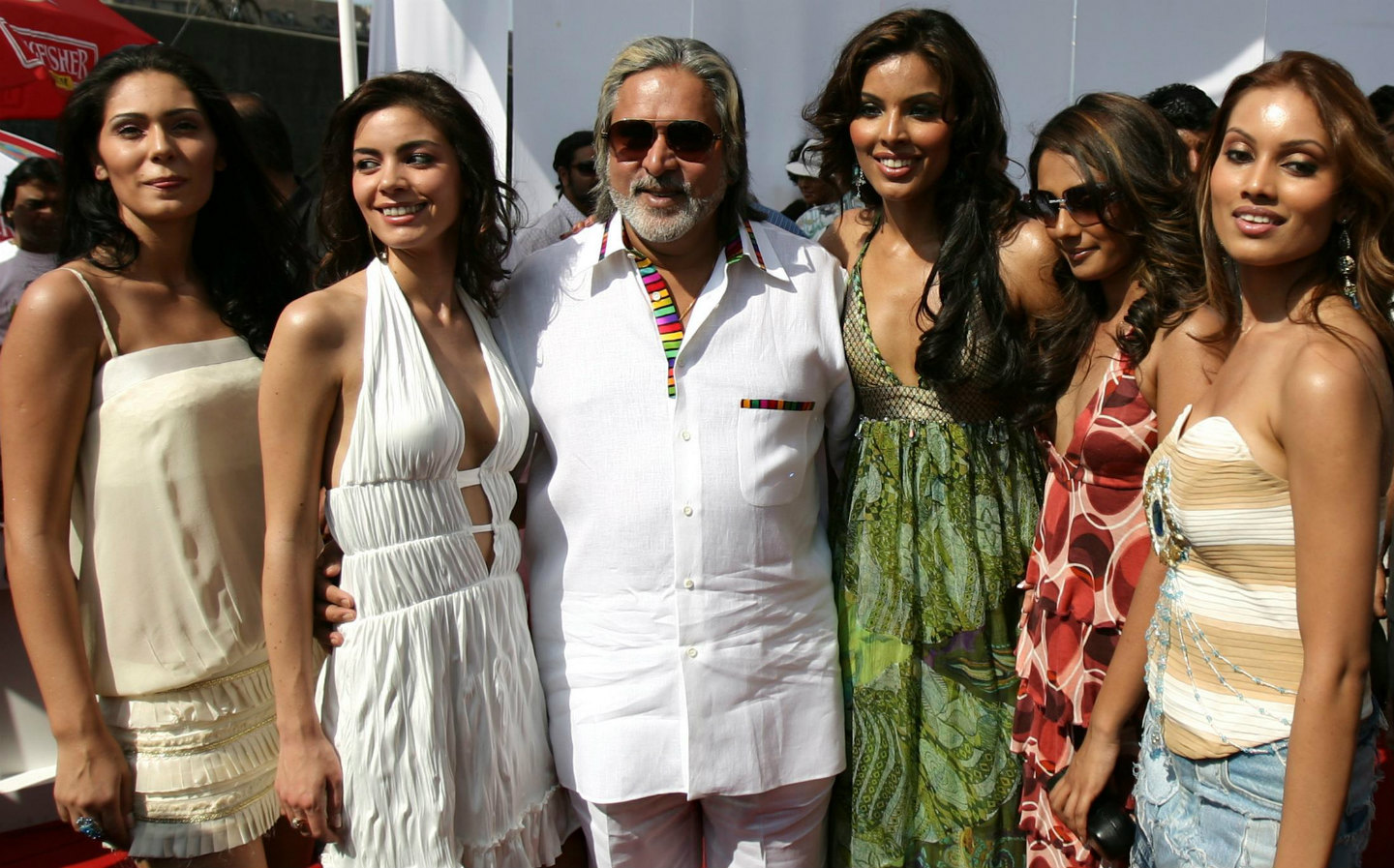Racing boss Vijay Mallya arrested over ‘£1bn debt’
India is seeking the extradition of 'the Asian Richard Branson' for alleged fraud
AN EXILED billionaire who calls himself “King of the Good Times” has been arrested for fraud over alleged debts of £1.1bn.
Vijay Mallya has spent the past year in exile in Britain, living in a home counties mansion. The lavish lifestyle inspired his nickname is at the centre of an extradition case against him.
Once hailed as Asia’s version of Richard Branson after making Kingfisher beer a global brand, he also ran the now-defunct Kingfisher airline, is head of the Force India Formula One team, based next to Silverstone racetrack, and finances an Indian Premier League cricket team. The flamboyant businessman became a household name in India, owning properties around the world, including Stowe Castle in Buckinghamshire, a collection of more than 200 cars and one of the world’s largest private yachts, the 312ft Indian Empress.
Browse NEW or USED cars for sale
Mallya, 61, voluntarily attended a central London police station on April 18 and was arrested at the request of the authorities in Delhi. The execution of India’s extradition warrant came six months after Theresa May visited the country to discuss post-Brexit trade deals.
The tycoon appeared for a brief hearing at Westminster magistrates’ court, where he was remanded on £650,000 bail with an order not to leave England and Wales. He will return for an extradition hearing on May 17.
Afterwards Mallya posted a message on Twitter: “Surrender of passport, arrest, bail all part of normal extradition proceedings.”
The businessman had previously described himself as being in “forced exile” and used Twitter earlier this year to deny wrongdoing, writing: “Not one rupee was misused.”
Mallya has been pursued by the Indian authorities over alleged unpaid government loans to Kingfisher Airlines, which collapsed in 2012 with the loss of 8,500 jobs. The opulent lifestyle he enjoyed while his airline’s staff worked unpaid for months won him little public sympathy.
Forcing Mallya to return to India will be difficult because, as well as challenging the fraud allegations, he could raise concerns about the ability of his homeland to hold a fair trial and the condition of its prisons.
His British base is a sprawling £11.5m mansion in the village of Tewin, Hertfordshire, which he bought in July 2015 from the father of the F1 star Lewis Hamilton.
India withdrew Mallya’s diplomatic passport last April in an attempt to force him to return, but the Foreign and Commonwealth Office insisted he was entitled to remain in Britain. The two governments were reported in the Indian media last month to have reached an agreement on extradition proceedings.
The political significance of the case was highlighted yesterday by Santosh Gangwar, an Indian finance minister, who pledged: “Mallya will be brought back to India. The government is working towards it. No one will be spared.”
India’s Central Bureau of Investigation has reportedly charged Mallya with cheating and conspiracy for defaulting on loans that were intended to buy aircraft parts but were allegedly transferred abroad.
More than £30m is reported to have been transferred to his children, including a son, Siddharth, 29, a former student at Wellington College and Queen Mary University of London, who is now an actor.
Other alleged debts are linked to the United Breweries Group, which Mallya inherited from his father at the age of 28 and turned into one of the world’s largest spirits makers, hosting extravagant yacht parties for Bollywood stars and politicians.
United Breweries, which is part-owned by Heineken, asked Mallya earlier this year to step down as non-executive chairman and leave the board.
He is also being pursued by Diageo, the British conglomerate that owns Guinness and Smirnoff, which accuses him of diverting £138m from United Spirits, its Indian subsidiary, into his companies.
Mallya was forced to stand down from his position as a member of India’s parliament last year after an ethics committee recommended his expulsion.
David Brown
This article first appeared in The Times





